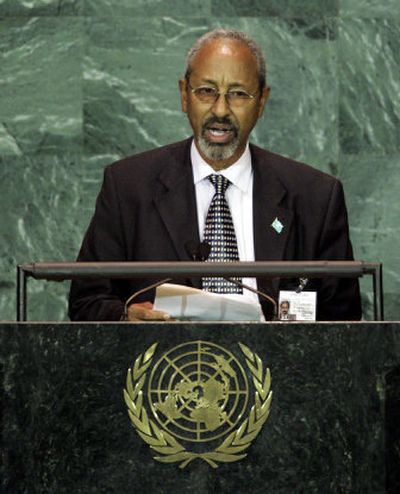U.N. adopts diluted blueprint for reform

UNITED NATIONS – History’s largest gathering of world leaders fell far short Friday of completing the major changes U.N. Secretary-General Kofi Annan sought to fight poverty, terrorism and human rights abuses – but the leaders took a first step.
At the end of a three-day summit, the leaders adopted a 35-page document by consensus and then burst into applause.
The leaders’ approval of the document – which commits governments to achieving U.N. goals to combat poverty and creates a commission to help move countries from war to peace – came alongside important developments in other areas.
Meetings on the sidelines of the summit marking the United Nations’ 60th anniversary produced rare Arab-Israeli contacts, further talks on Iran’s nuclear ambitions and a new treaty by dozens of countries aimed at preventing nuclear terrorism.
President Bush, who two years ago questioned whether the United Nations was relevant, surprised many by giving the world body his strong backing.
The three-day summit, which was closing Friday, brought presidents, prime ministers and kings from 151 of the 191 U.N. member states to the United Nations – a record number, according to U.N. officials.
Instead of adopting Annan’s sweeping blueprint to enable the world body to deal with the challenges of a new century, they were presented with a diluted 35-page document. The final document represented the lowest common denominator that all countries could agree on after months of negotiations, and even then Cuba and Venezuela expressed reservations.
Annan said the summit would make an “important advance” despite the dilution of key elements of the U.N. reform plan he presented in March.
The most significant planks in the final document are the creation of a new Peacebuilding Commission to help countries emerging from conflict and an acceptance by all governments of the collective international responsibility to protect people from genocide, war crimes and ethnic cleansing.
It agrees to establish a Human Rights Council to replace the Human Rights Commission, which has been widely criticized for becoming politicized and having rights abusers among its members – but there is no guarantee this won’t happen with the new body.
But divisions were so strong that the entire section on disarmament and nonproliferation in the document was dropped, a move which Annan called “a disgrace.” Expansion of the U.N. Security Council, which consumed months of negotiations in the run-up to the summit, proved so contentious that it was shelved, and the issue was reduced to a single paragraph in the final document.
Many of these issues will remain on the agenda over the next 12 days during the annual ministerial meeting of the General Assembly.